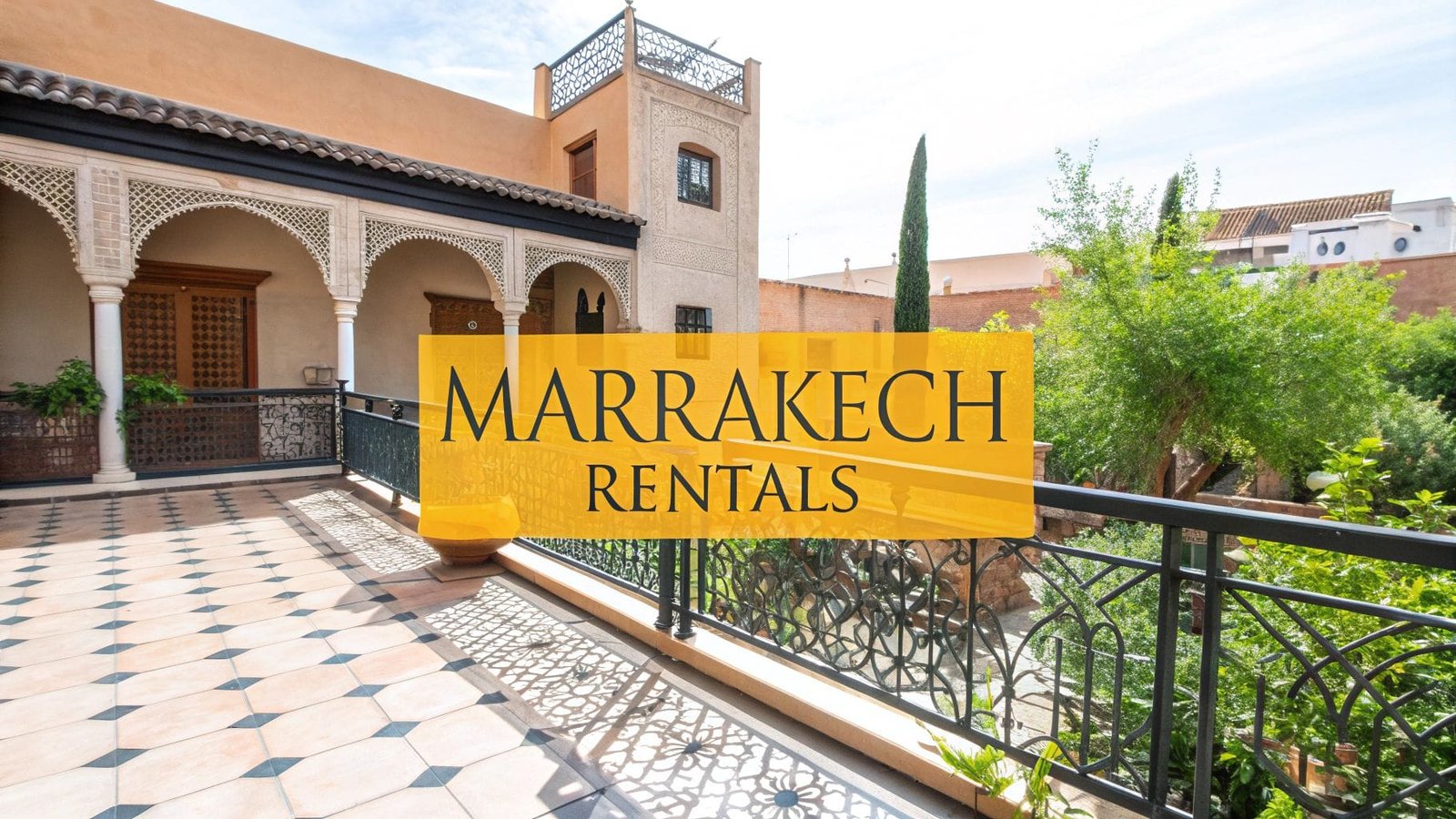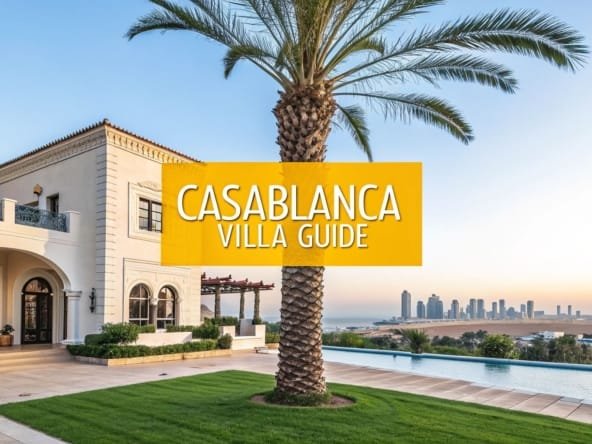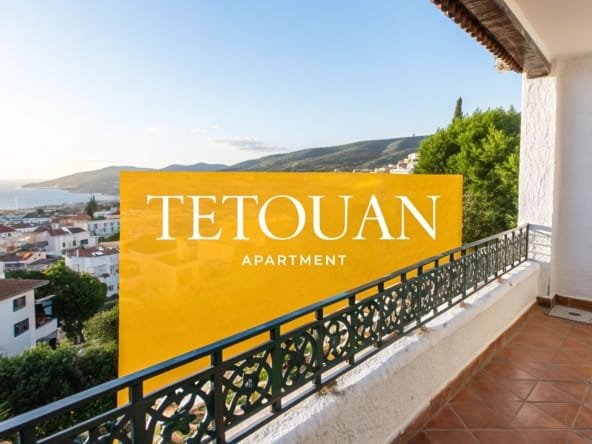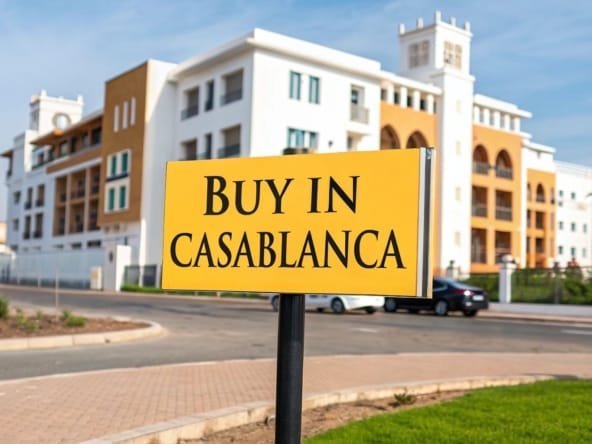To find an appartement louer a marrakech, you need to understand the city's unique rhythm. The rental market here isn't like anywhere else; it's a vibrant mix of ancient riads tucked away in narrow alleyways and sleek, modern flats in the newer, bustling districts. Getting this right from the start means knowing the key players and local customs before you even begin looking.
Getting a Feel for the Marrakech Rental Market
Finding your perfect apartment in Marrakech is less about scrolling through listings and more about diving into a market shaped by a dynamic blend of tradition and modernity. Forget any rental process you're used to back home. Marrakech moves to its own beat, one heavily influenced by a constant stream of tourists, a growing expat community, and deeply rooted local ways of doing things.
The first thing to realise is that the market isn't one-size-fits-all. What you’ll find in the historic Medina is a world away from the polished offerings in Guéliz or Hivernage. One offers a genuine immersion into centuries of culture, while the other provides a contemporary, almost European lifestyle with trendy cafes and boutiques right on your doorstep.
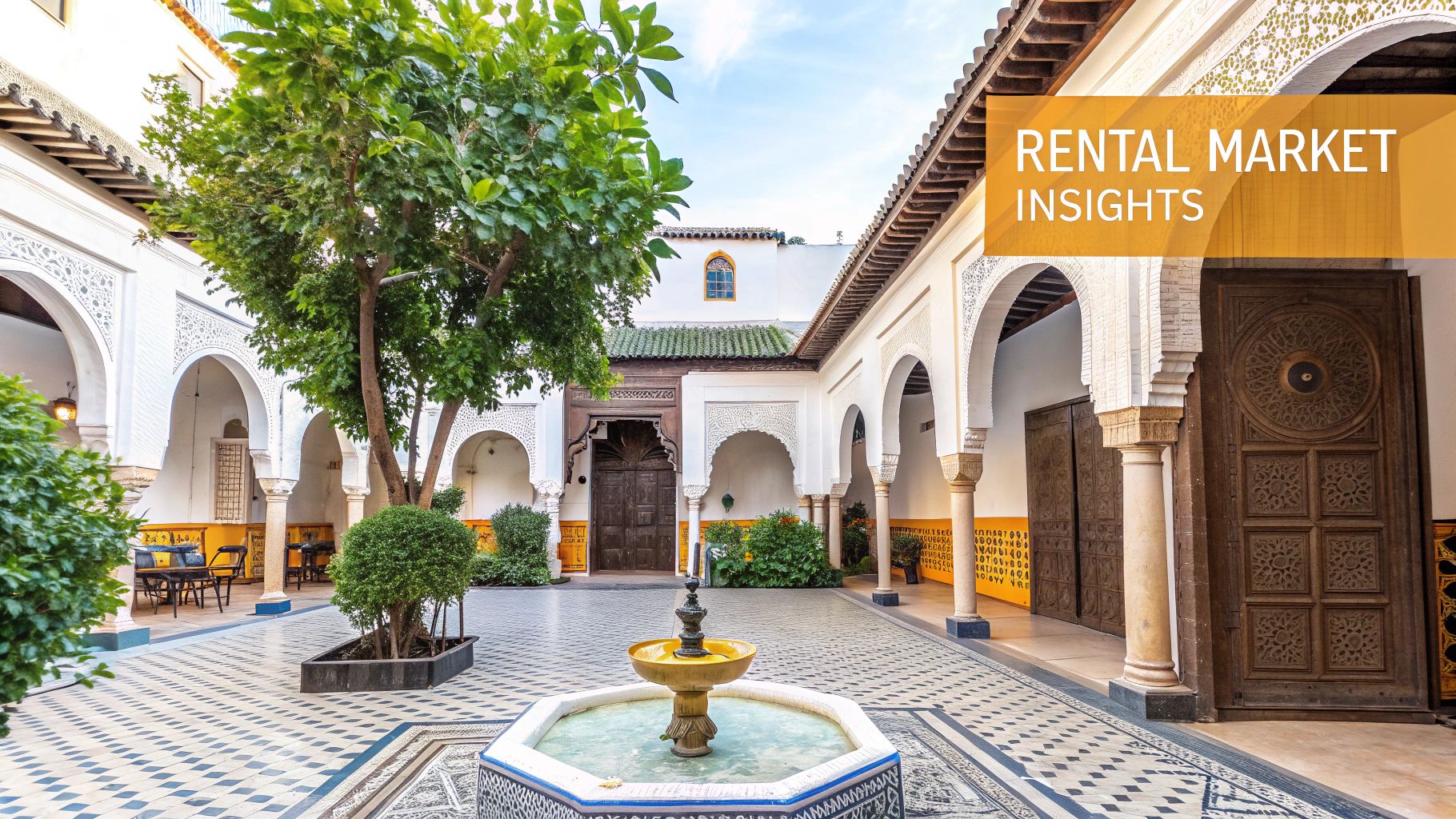
Before you begin, here’s a quick overview of what to expect.
Marrakech Rental Market Snapshot
| Aspect | Key Considerations |
|---|---|
| Market Type | Dual market: high-demand short-term lets for tourists vs. more stable long-term rentals for residents. |
| Key Players | A mix of formal agencies (agences), independent brokers (samsars), and direct landlords. |
| Pricing | Varies dramatically by neighbourhood, property type (riad vs. apartment), and proximity to amenities. |
| Lease Terms | Clear distinction between flexible (but pricier) short-term lets and formal long-term contracts (contrat de bail). |
| Local Nuances | Negotiation is common, and building personal relationships can be just as important as your application. |
This table should give you a solid starting point for wrapping your head around the local landscape.
Who You'll Be Dealing With
Your search will bring you into contact with a few different types of people, and it's not always as simple as walking into a real estate agency.
- Landlords (Propriétaires): It's quite common to deal directly with the property owner, especially for long-term rentals. This can be great for building a good relationship, but be prepared for more informal negotiations and arrangements.
- Professional Agencies (Agences Immobilières): These are your best bet for a structured process. They offer formal contracts and a portfolio of verified properties. You'll pay a fee—usually one month's rent—but it buys you security and legal clarity.
- Samsars (Informal Agents): This is where local knowledge really comes into play. Samsars are independent, hyper-local brokers who operate entirely on word-of-mouth. They have incredible connections and can unearth hidden gems you'll never find online. Just be aware their fees and methods can be less transparent.
You can't ignore the massive influence of tourism on the rental market. The constant demand for short-term holiday lets affects everything from prices to availability. Data from AirDNA for 2025 shows that the average Airbnb occupancy rate in Marrakech is a very strong 74%. For the sought-after traditional riads in the Medina, that figure climbs even higher to between 75% and 85%, which shows just how much competition there is from international visitors.
Short-Term vs. Long-Term Leases
Your strategy will also hinge on how long you plan to stay. The market is clearly split into two main types of leases, each with its own set of rules and expectations.
Short-Term Rentals (Location Courte Durée)
These are typically furnished places rented by the week or month. They're a favourite among tourists and digital nomads because they offer total flexibility. The price per month is higher, but it almost always includes utilities, making it a convenient, plug-and-play option for shorter stays.
Long-Term Rentals (Location Longue Durée)
If you're staying for a year or more, you'll need a formal rental contract, or contrat de bail. These apartments often come unfurnished, giving you a blank canvas. The monthly rent is much lower, but you’ll be responsible for setting up and paying for your own utilities like water, electricity, and internet.
Here's the most important takeaway for anyone looking to rent here: the process in Marrakech is built on relationships. It doesn't matter if you're working with a polished agency or a local samsar—taking the time to communicate clearly and respectfully will open far more doors than just clicking through online listings.
Starting your search with this groundwork gives you a real advantage. You’re now ready to figure out which neighbourhoods fit your lifestyle, who to call for the best leads, and what kind of lease makes sense for you. This knowledge turns what could be a confusing ordeal into a clear, manageable path to finding your new home in the Red City.
Finding Your Ideal Marrakech Neighbourhood
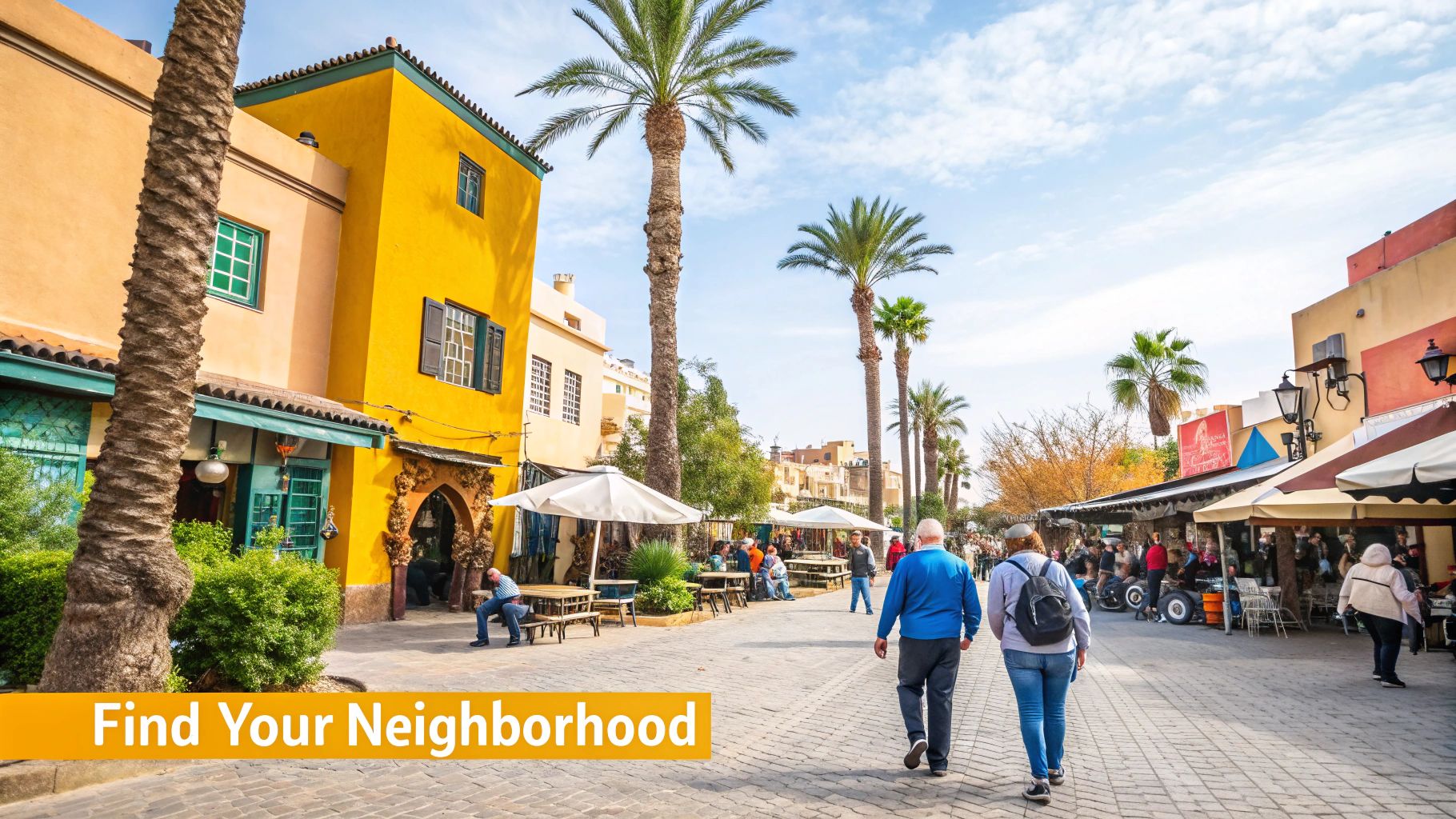
Choosing where to live in Marrakech is probably the most critical decision you'll make. This isn't just about the four walls of your flat; it's about choosing your lifestyle. Each part of the city has its own distinct personality, and finding the right fit comes down to what you truly value in your daily life.
The city offers a bit of everything, from the intoxicating, historic buzz of the Medina to the chic, European-style avenues of Guéliz. Where you land will shape everything from your morning coffee run to your social life. Let's break down the city’s key areas so you can find where you belong.
Guéliz: The Modern Heartbeat
If you're after a cosmopolitan lifestyle with a modern, almost European feel, Guéliz should be at the top of your list. This is the "new town," built by the French in the early 20th century, and it shows. Its wide boulevards are lined with international brands, contemporary art galleries, and stylish cafes.
Living in Guéliz is all about convenience. You'll have supermarkets, cinemas, and modern amenities right on your doorstep. It’s a magnet for expats and young professionals who want an easy transition into Moroccan life without giving up their familiar comforts.
- The Vibe: Energetic, international, and always buzzing.
- Best For: Expats, young professionals, and anyone who puts convenience and a lively social scene first.
- Typical Rent (2-bed): 5,000 – 7,000 MAD/month.
Hivernage: The Upscale Oasis
Right next to Guéliz, you’ll find Hivernage, its more polished and luxurious sibling. This is the neighbourhood of five-star hotels, high-end restaurants, and exclusive nightclubs, all wrapped in a more tranquil and sophisticated package.
Flats here are usually in newer, more prestigious buildings that often come with perks like swimming pools and 24-hour security. It's a quieter choice than Guéliz but still just a short walk from the action, striking a perfect balance between calm and accessibility. If the budget stretches, Hivernage delivers a seriously elevated living experience.
Choosing between Guéliz and Hivernage really comes down to your personal energy preference. Guéliz is for being in the action; Hivernage is for being comfortably near it.
The Medina: Deep in Authenticity
For anyone wanting to dive headfirst into a truly Moroccan experience, there is nowhere else but the Medina. Living within the ancient city walls means navigating a labyrinth of narrow alleyways, bustling souks, and hidden courtyards. It's a full-on sensory experience, and that's the whole point.
Here, renting usually means a traditional riad or dar—a house built around a central courtyard. They are unbelievably charming, but be aware that properties can be older and might lack some modern comforts. This is the place for adventurers, artists, and anyone who wants to be completely immersed in the city's historic soul. For a closer look at the online search, our guide on using platforms like Avito for apartment hunting in Marrakech can be a real help.
Palmeraie: The Luxurious Escape
Just a short drive from the city centre lies the Palmeraie, a vast palm grove dotted with luxurious villas, exclusive resorts, and manicured golf courses. This area is less about flats and more about spacious, private living.
Renting a villa out here is like having your own private resort, offering ultimate privacy and quiet. The catch? You'll absolutely need a car to get into the city for groceries, errands, and socialising. This spot is perfect for families or anyone craving a serene escape from the urban hustle.
- The Vibe: Exclusive, secluded, and utterly luxurious.
- Best For: Families, retirees, and those who prioritise privacy and space above all else.
- Typical Rent (Villa): 15,000 – 30,000 MAD/month and up.
Targa and Daoudiate: Residential and Budget-Friendly
Looking for a more local, residential vibe that's easier on the wallet? Neighbourhoods like Targa and Daoudiate are fantastic options. They are a bit further from the city centre, but what you get in return is a quieter, more community-focused atmosphere.
You'll find plenty of modern apartment buildings and a genuine glimpse into everyday Moroccan life. While you might need to hop in a taxi for frequent trips to Guéliz or the Medina, the trade-off is a much lower rent and a more relaxed pace. They're a smart choice for anyone searching for an appartement louer a marrakech on a tighter budget.
Budgeting for Your Apartment Rental
Before you even start scrolling through listings for an appartement louer a marrakech, let's talk numbers. It's easy to get swept up in the excitement of finding the perfect place, but going in with a crystal-clear budget is the single best thing you can do to make the process smooth and stress-free.
This isn’t just about the monthly rent figure you see advertised. We need to look at the whole picture—the one-off costs to get your keys, and the regular monthly bills that will land on your doorstep. Getting this right from the beginning means no nasty surprises later on.
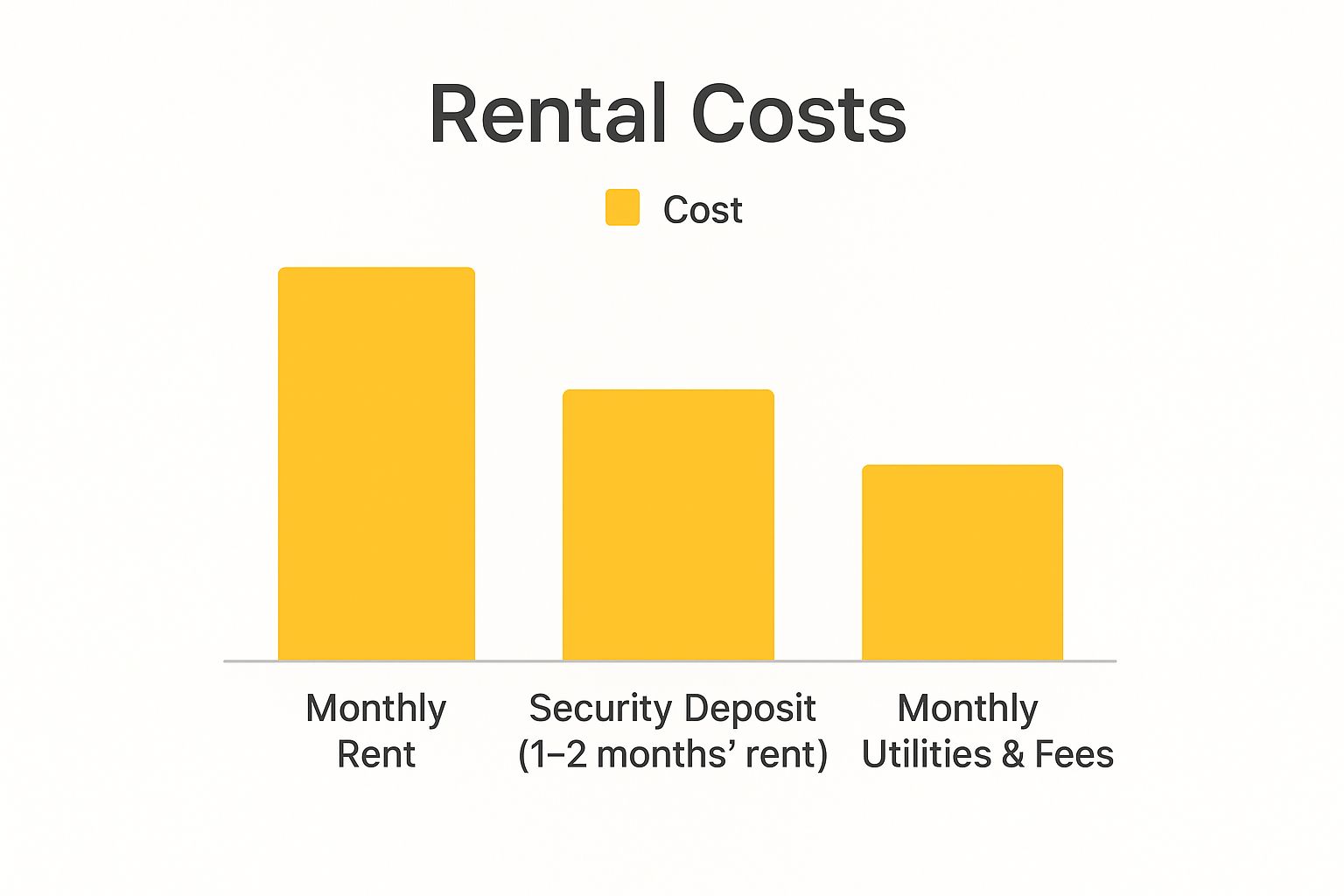
As you can see, the initial payment to secure a flat is often much higher than the recurring monthly rent, something that catches many first-time renters off guard.
The Upfront Payments You Can't Ignore
Once you find an apartment you love, you’ll need to act fast and have funds ready to cover a few key payments. This is standard procedure across Marrakech.
- First Month's Rent: Simple enough—you always pay your first month before moving in.
- Security Deposit (Caution): Landlords in Morocco require a security deposit, known locally as the caution. Expect this to be one or two months' rent. This is your landlord’s insurance against damages, and you should get it back when you move out, provided you leave the place in good shape.
- Agency or Samsar Fees: If you're working with a professional real estate agency or a local broker (samsar), they’ll take a fee for finding you the property. The going rate is typically one month's rent, though sometimes there’s a little wiggle room for negotiation.
Let's put that into perspective. If you find a great flat for 5,000 MAD a month, your initial outlay could easily be between 15,000 and 20,000 MAD. Be prepared for it.
Planning Your Ongoing Monthly Expenses
Your budget doesn't stop after you've signed the lease and paid the initial fees. To avoid any financial strain, you have to account for all the other bills that come with running a home.
These are the costs that often get forgotten but are a vital part of your total monthly spend.
Pro Tip: A classic mistake is underestimating utility bills and building fees. As a rule of thumb, I always advise clients to add an extra 15-20% on top of the rent to create a truly realistic monthly budget.
Here’s what you should expect to pay each month:
- Utilities (RADEEMA): Your electricity and water are managed by the local provider, RADEEMA. Costs will fluctuate based on your usage—especially if you run the air conditioning heavily in the summer—but budget for somewhere between 500 and 800 MAD per month.
- Internet and Mobile: A good internet connection is non-negotiable for most. The main providers are Maroc Telecom, Orange, and Inwi. A decent fibre optic package will set you back about 250 to 400 MAD monthly.
- Building Fees (Syndic): Living in an apartment complex with shared spaces like a lift, a garden, or a concierge? You'll contribute to their upkeep through syndic fees. This is usually a modest 100 to 300 MAD per month.
To give you a clearer idea, here is a sample budget for a one-bedroom apartment in a popular neighbourhood like Guéliz.
Sample Monthly Rental Budget in Marrakech (Guéliz)
| Expense Category | Estimated Cost (MAD) |
|---|---|
| Rent (1-bedroom) | 5,500 |
| Utilities (Water & Electricity) | 650 |
| Internet (Fibre Optic) | 300 |
| Syndic (Building Fees) | 200 |
| Total Estimated Monthly Cost | 6,650 |
This table provides a snapshot, but remember that costs can vary. Getting a handle on these expenses is crucial for comfortable living. For a more comprehensive look at daily costs, our guide on the cost of living in Marrakech breaks everything down even further.
It’s also worth noting the investment climate that shapes these prices. Marrakech boasts impressive gross rental yields, from 5.18% to 8.99%, which are higher than in other major Moroccan cities. This is fuelled by strong demand from both locals and a constant flow of expats and tourists, keeping the rental market dynamic and competitive.
Navigating Apartment Viewings Like a Pro
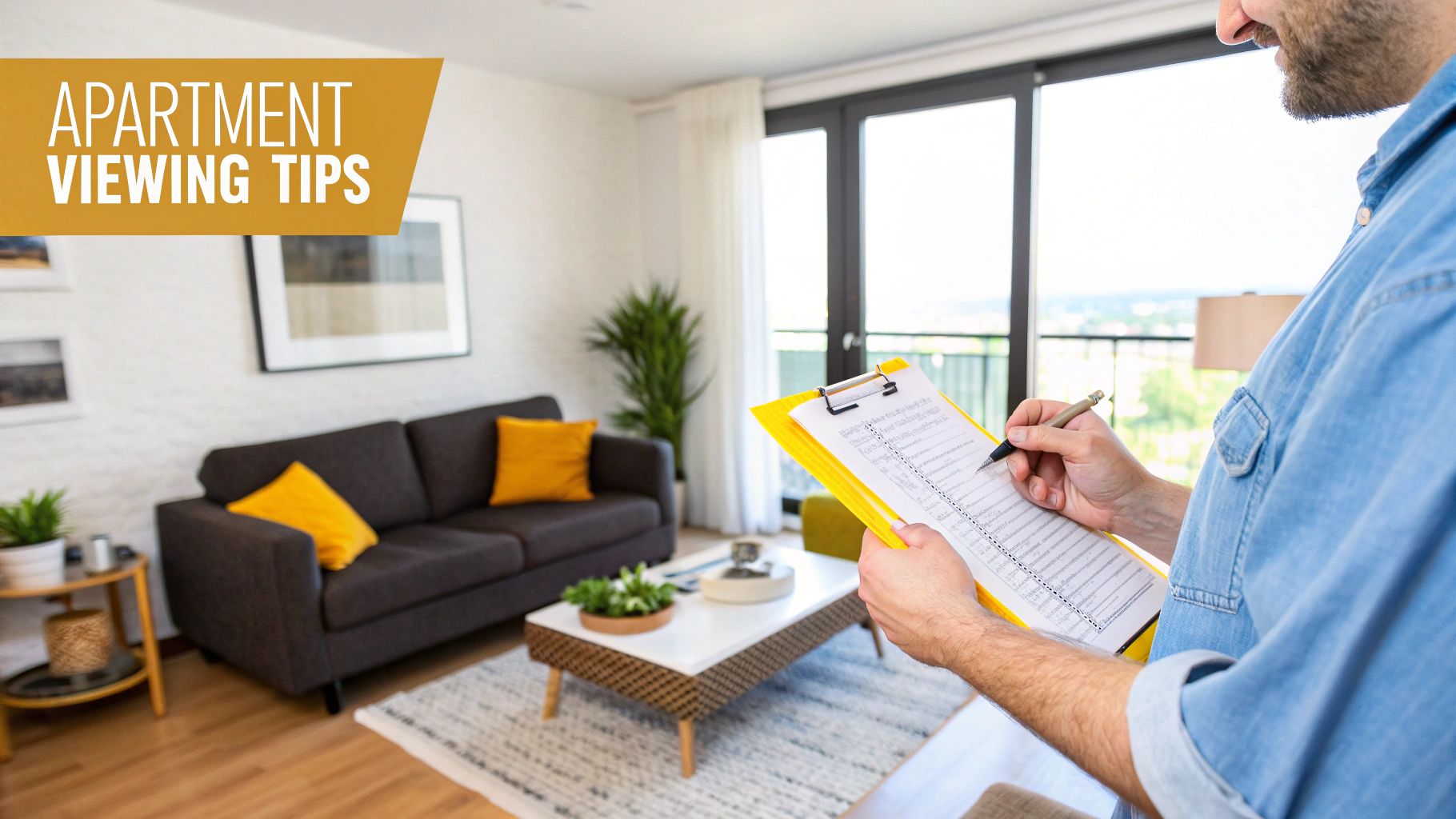
This is the point where your search for an appartement a louer a marrakech gets real. Moving from browsing online to stepping inside a property is a critical transition, and your preparation here is everything. While your hunt probably started on popular Moroccan sites like Mubawab and Avito.ma, never underestimate the power of on-the-ground contacts. A good agent or a well-connected samsar (a local broker) can often open doors to places that you'll never see listed online.
Once you’re standing in a potential new home, you need to switch gears from an admirer to an inspector. It’s incredibly easy to get swept away by gorgeous zellij tilework or a sun-drenched balcony, but a successful viewing means looking much, much deeper. You have to see past the pretty features and get a feel for the apartment's bones.
Creating Your Viewing Shortlist
Before you even think about scheduling visits, get organised. A simple spreadsheet or even a note on your phone can be a lifesaver. Track the essentials for each place: address, agent’s name, rent, and what you liked or disliked. Trust me, after seeing a few places, they all start to blend together. This simple step will be crucial for making a clear-headed decision later.
A smart move is to group your viewings by neighbourhood. If you’re keen on Guéliz, for instance, try to line up three or four viewings there for the same afternoon. It’s far more efficient and gives you a genuine feel for the area—what the streets are like, the noise levels, and what your budget actually gets you in that specific part of town.
The Essential On-Site Inspection Checklist
The moment you walk through the door, it’s game time. Come armed with a mental checklist of your non-negotiables and potential red flags. Your focus should be on the practical things that will affect your daily life.
Here’s what you absolutely must check:
- Water Pressure and Plumbing: Don't be timid about this. Turn on the taps in the kitchen and bathrooms. Is the pressure strong and steady? Flush the toilets. And while you're at it, peek under the sinks and around the toilet base for any tell-tale signs of leaks.
- Electrical Systems: Flick every single light switch. I also recommend bringing a phone charger to test a few outlets. Faulty wiring isn't just an inconvenience; it can be a serious safety hazard.
- Signs of Damp or Mould: Look closely at ceilings and corners, especially in the kitchen and bathroom where humidity is highest. Water stains, peeling paint, or that distinct musty smell are major red flags that could point to bigger structural issues.
- Windows and Doors: Open and close everything. Do the windows seal properly to keep out dust and noise? Are the locks on the doors sturdy? Good seals are key for insulation against both the summer heat and the surprisingly chilly winter nights.
Pro Tip: Take photos or a quick video of every apartment you see. Make sure to zoom in on any existing damage, like a cracked tile or a scuff on the wall. If you end up taking the place, this documentation becomes an invaluable record of the apartment's condition before you moved in.
Questions You Must Ask the Landlord or Agent
Your inspection isn't just about what you can see. The person showing you the flat is your best source of information, so use that opportunity to dig for details.
Walk in with a few key questions ready:
- What, exactly, is included in the rent? Specifically ask about the syndic (building fees), water, and if any other utilities are covered. Surprises here can wreck your budget.
- What's the neighbourhood like at night? Is it quiet or is there a busy café right underneath the window? Ask about traffic and general noise levels.
- Are there any planned works for the building? The last thing you want is to move in and find yourself living in a construction zone for the next six months.
- How is the mobile and internet signal? A dead zone can be a deal-breaker. Check the signal on your own phone while you’re there.
Asking these direct questions shows you're a serious and thorough tenant. The answers will help you build a complete picture of the property, one that goes far beyond its appearance. It’s this level of detail that will help you choose an apartment that’s not just beautiful, but safe, functional, and a place you can truly call home.
Getting to Grips with Your Moroccan Rental Contract
You’ve found the perfect apartment in Marrakech. The view is right, the neighbourhood feels like home. Now comes the most critical part: the paperwork.
The rental agreement, known here as the ‘contrat de bail’, is more than just a formality. This document is your single most important piece of legal protection, clearly laying out what you and your landlord can expect from each other.
Whatever you do, don't rely on a handshake or a verbal promise. A written contract, ideally drafted in both French and Arabic, is your best friend. It secures your tenancy and gives you a clear path for sorting out any disagreements that might crop up later on.
The Make-or-Break Clauses to Check
Before you even think about signing, take a deep breath and read every single word. If your French or Arabic isn’t quite up to dissecting legal text, it’s well worth the effort to have a trusted Moroccan friend or a legal professional look it over with you. Rushing this part is a recipe for headaches down the road.
Pay special attention to these key areas:
- Lease Duration (Durée du Bail): In Morocco, most long-term contracts run for at least one year. Make sure the start and end dates are explicitly written down, along with any conditions for renewing the lease.
- Rent and Payment Details (Loyer et Modalités de Paiement): The contract needs to state the exact monthly rent in Moroccan Dirhams (MAD). It should also be crystal clear on the payment due date and how the landlord wants to be paid—bank transfer is common, but some still prefer cash.
- Security Deposit (Dépôt de Garantie/Caution): You’ll see the deposit amount here, which is usually one or two months' rent. The really important part, though, is the section that explains the exact conditions for getting it back when you leave.
Getting these fundamentals right is non-negotiable. For a much more detailed breakdown, our guide to the Moroccan rental contract (contrat de bail) will walk you through everything you need to know to sign with confidence.
A Pro Tip You Can't Ignore: Your contract has to be officially registered with the local authorities (the commune). An unregistered contract offers you very little legal protection. It's the landlord's job to handle this, so make sure you insist on getting a registered copy for your records.
Who Fixes What? Sorting Out Maintenance and Repairs
One of the most common sources of friction between tenants and landlords is figuring out who pays for repairs. A good contrat de bail will spell this out clearly.
Typically, the responsibilities are split like this:
- Your Job (The Tenant): You're on the hook for the small, everyday stuff. Think changing lightbulbs, fixing a dripping tap, or general upkeep of the appliances that came with the flat.
- Their Job (The Landlord): The landlord handles the big-ticket items. This means major structural work, problems with the roof, plumbing hidden in the walls, or the main electrical system.
Having this defined in black and white from the start saves a lot of back-and-forth later. Everyone knows where they stand.
The rental market doesn't exist in a vacuum; it’s tied to the wider real estate scene. Apartment prices in Marrakech have stayed competitive, keeping the city attractive for both locals and people from abroad. In 2025, the average price for an apartment is hovering around 13,000 Moroccan Dirhams (MAD) per square metre. That's a slight bump from 2024, showing steady demand, but it still makes Marrakech more affordable than hubs like Casablanca or Rabat. You can explore more data on Moroccan property prices over at Agenz.ma.
Moving Out and the Rules on Subletting
Finally, look carefully at the clauses about ending your tenancy. Your contract must state the required notice period (préavis) you need to give before you move out. This is usually somewhere between one and three months.
Also, be sure to check the rules on subletting (sous-location). The vast majority of standard Moroccan rental contracts will flat-out forbid you from subletting the apartment without getting the landlord's permission in writing first. Trying to get around this can be grounds for immediate eviction, so it’s a rule you don’t want to bend. Understanding these exit terms ensures that when it’s time to move on, the process is as smooth as possible.
Frequently Asked Questions About Renting in Marrakech
As you start looking for an appartement louer a marrakech, you'll inevitably run into some practical questions. It's one thing to have a plan, but it's another to handle the real-world situations that pop up along the way. This section is all about tackling those common hurdles, from the art of the deal to the basics of getting your lights turned on.
Think of this as your quick guide for those final, crucial steps. We'll give you the straightforward, experienced advice you need to navigate these moments like a local and make your move into a new Moroccan home that much smoother.
Can I Negotiate the Rent?
Yes, absolutely. In Marrakech, the price you see on a listing is often just the opening line of a conversation, not the final word. Most landlords, particularly private owners, fully expect a bit of back-and-forth. The key is to approach it with the right touch of cultural awareness and strategy.
How much wiggle room you have really depends on a few things:
- Market Demand: If you’re eyeing a place in a hot neighbourhood like Guéliz during the busy season, your negotiating power is limited. On the other hand, if a flat has been sitting empty for a couple of months, the owner will likely be much more open to a deal.
- Lease Length: This is a big one. Offering to sign a longer lease—say, two years instead of the standard one—is a fantastic bargaining chip. Landlords love the security of a reliable, long-term tenant.
- Your Profile: Coming across as a dependable tenant with a steady job and solid references can make a landlord much more willing to drop the price for you.
Always be polite and respectful. A reasonable offer is usually a 5-10% reduction from the asking price. Trying to push for much more than that can come across as rude and might just end the discussion before it even starts.
How Do I Set Up Utilities?
You’ve got the keys in hand—congratulations! Now it's time to get the water and electricity connected. In Marrakech, this is handled by one public company, RADEEMA (Régie Autonome de Distribution d'Eau et d'Electricité de Marrakech).
The process is fairly simple, but it does require an in-person visit to one of their local offices.
You’ll need to bring a few documents with you:
- A copy of your registered rental agreement (contrat de bail).
- Your Moroccan ID card (carte nationale) or residency permit (carte de séjour).
- A small fee to cover the account setup and a security deposit.
A bit of friendly advice: the RADEEMA office can get busy. Try to go early in the morning and have all your papers organised in a folder. It’ll make the whole process feel less like a chore. Your landlord or agent should be able to point you to the nearest branch.
Are Furnished Apartments a Good Idea?
This really comes down to your personal situation. For expats or anyone moving here for a set period, a furnished apartment is incredibly convenient. You can literally show up with your suitcases and be ready to go, skipping the cost and hassle of buying furniture. It's a perfect solution for someone on a one- or two-year work contract.
Of course, there's a trade-off. You'll pay a higher monthly rent for that convenience, and you won't have much say in the decor. If you see yourself staying in Marrakech for the long haul, renting an unfurnished place almost always makes more financial sense. It gives you a blank canvas to create a space that truly feels like your own.
What Is the Role of a Concierge?
In many of the more modern apartment buildings here, you'll have a concierge, or gardien. This person is much more than just a security guard; they're a key part of the building's daily life. They typically look after the common areas, collect packages, and generally keep an eye on things.
Take the time to build a good relationship with your gardien. They can be an amazing resource, whether you need a recommendation for a good plumber or just some help with a minor issue. A small tip during major holidays like Eid is a customary and much-appreciated gesture that goes a long way.
Finding the right home in Marrakech is an exciting chapter, and with the right team behind you, it can be a truly seamless experience. At Rich Lion Properties, our local experts know the city inside and out and are here to guide you through every step. Explore our handpicked listings and let us help you find your perfect apartment. Learn more about how we can help at https://richlionproperties.com.
